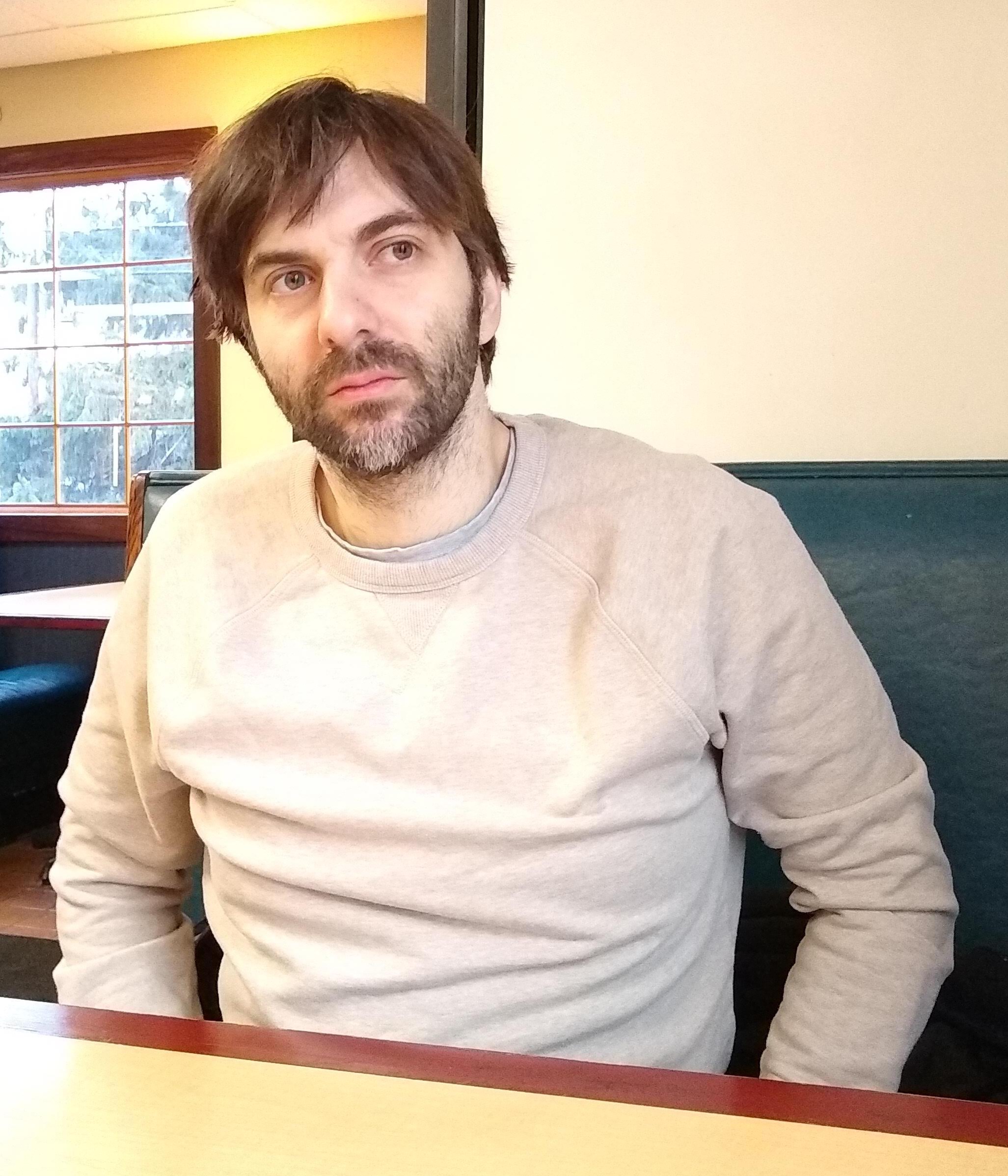I'm a mathematician working primarily on topological
data analysis (TDA). My research focuses on the
theoretical foundations of TDA, and also on the computational and applied aspects of the subject.
A lot of my work is on multiparameter persistence; see
.
is practical tool
for the visualization and analysis of two-parameter persistent
homology, designed by Matthew Wright and me, and developed by
Sparse Approximation of the Subdivision-Rips Bifiltration for Doubling Metrics
w/ Ken McCabe. Submitted; arXiv:2408.16716,
2024. 20 pages.
Nerve Models of Subdivision Bifiltrations
w/ Ken McCabe. Submitted; arXiv:2406.07679,
2024. 37 pages.
Delaunay Bifiltrations of Functions on Point Clouds
w/ Ángel Javier Alonso, Michael Kerber, and Tung Lam. Symposium on Discrete Algorithms (SODA) 2024. 20 pages.
Efficient two-parameter persistence computation
via cohomology
w/ Ulrich Bauer and Fabian Lenzen. SoCG
2023. 23 pages.
An introduction to Multiparameter Persistence
w/ Magnus Botnan. Proceedings of the 2020 International Conference on Representations of Algebras (published in 2023). 74 pages.
Universality of the Homotopy Interleaving Distance
w/ Andrew J. Blumberg. Transactions of the American Mathematical Society, 2023. 39 pages.
Stability of 2-Parameter Persistent Homology
w/ Andrew J. Blumberg. Foundations of Computational Mathematics.
2022. 43 pages.
The Universal ℓp-Metric on Merge Trees
w/ Robert Cardona, Justin Curry, and Tung Lam. SoCG
2022. 20 pages.
Computing Minimal Presentations and Bigraded Betti Numbers of 2-Parameter Persistent Homology
w/ Matthew Wright. SIAM Journal on Applied Algebra and Geometry 2022. 32 pages.
Computing the Multicover Bifiltration
w/ René Corbet, Michael Kerber, and Georg Osang. SoCG
2021. 17 pages. Extended version invited/accepted to Discrete and Computational Geometry.
ℓp-Distances on Multiparameter Persistence Modules
w/ Håvard Bakke Bjerkevik. arXiv:2106.13589,
2021. 43 pages.
Persistence Diagrams as Diagrams: A Categorification of the
Stability Theorem
w/ Ulrich Bauer. Proceedings of the 2018 Abel
Symposium (published in 2020). 30 pages.
Quantifying Genetic Innovation: Mathematical Foundations for the
Topological Study of Reticulate Evolution
w/ Raul Rabadán, Daniel I.S. Rosenbloom. SIAM Journal
of Applied Algebra and Geometry, 2020. 44 pages.
Feasibility of topological data analysis for event-related fMRI
w/ Cameron T. Ellis (first author), Gregory Henselman-Petrusek, Bryn Keller, Jonathan D. Cohen.
Network Neuroscience,
2019. 24 pages.
Exact computation of the matching distance on 2-parameter persistence modules
w/ Michael Kerber, Steve Oudot. SoCG 2019. Full version invited to the
Journal of Computational Geometry. 15 pages.
Algebraic Stability of Zizag Persistence Modules
w/ Magnus Botnan. Algebraic & Geometric Topology,
2018. 72 pages.
Interactive Visualization of 2-D Persistence Modules
w/ Matthew Wright. Submitted; arXiv:1512.00180,
2015. 75 pages.
Induced Matchings and the Algebraic Stability of
Persistence Barcodes
w/ Ulrich Bauer.
SoCG 2014; invited to the Journal of Computational Geometry, 2015. 30 pages.
The Theory of the Interleaving
Distance on Multidimensional Persistence Modules
Foundations of Computational Mathematics, 2015. 36 pages.
Studying
the Shape of Data Using Topology
IAS Letter, Summer 2013. A friendly introduction to TDA for non-mathematicians.
Multidimensional
Interleavings and Applications to Topological Inference
Ph.D. thesis, 2012.
Winner, Gene Golub Dissertation Award.
Note: Chapters 2 and 3 of this thesis are, respectively, largely subsumed by the above 2015 FoCM paper on multiparameter interleavings and the 2023 TAMS paper with Blumberg on homotopy interleavings. Chapter 4 is loosely related to the 2022 FoCM paper with Blumberg on 2-parameter stability, though the results are different. The results from the paper are much more convincing.
